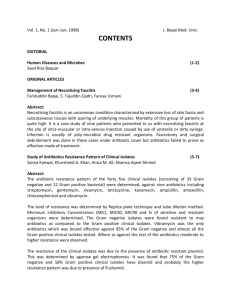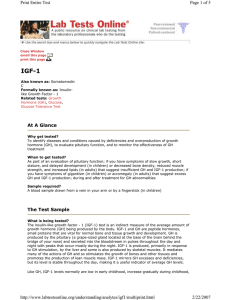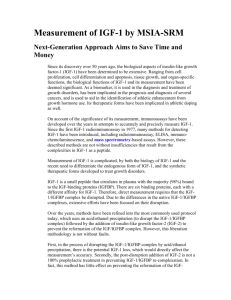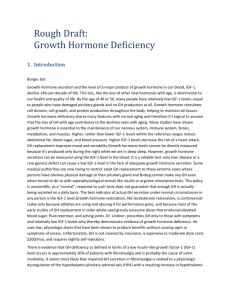GHDeficiencyProtocol..
advertisement
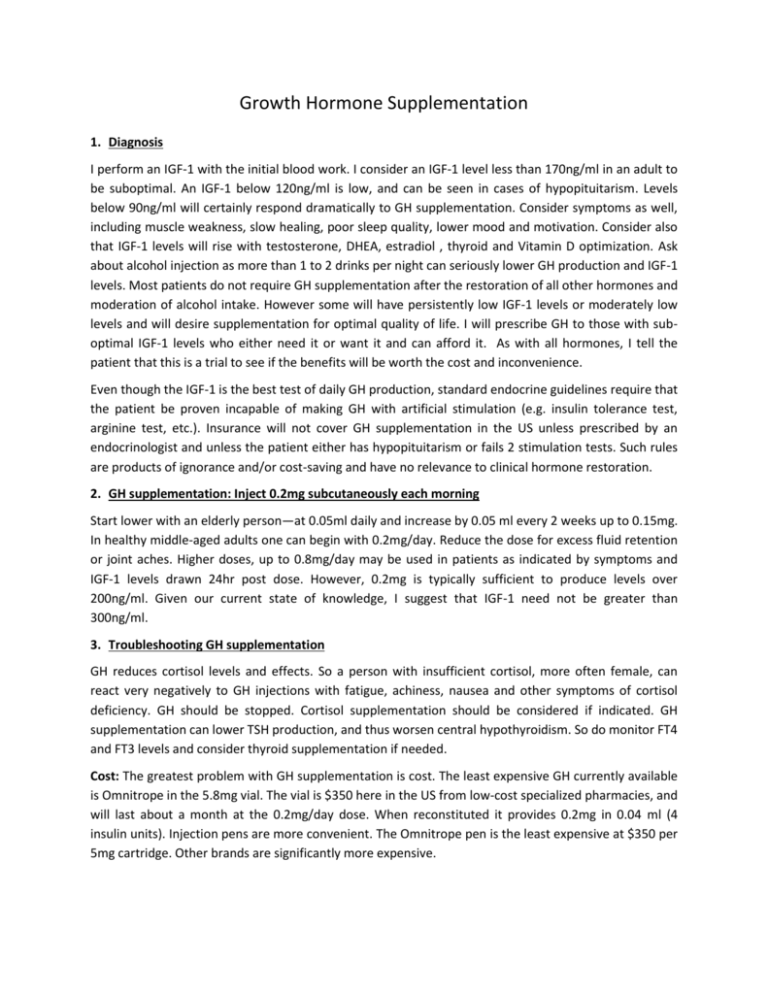
Growth Hormone Supplementation 1. Diagnosis I perform an IGF-1 with the initial blood work. I consider an IGF-1 level less than 170ng/ml in an adult to be suboptimal. An IGF-1 below 120ng/ml is low, and can be seen in cases of hypopituitarism. Levels below 90ng/ml will certainly respond dramatically to GH supplementation. Consider symptoms as well, including muscle weakness, slow healing, poor sleep quality, lower mood and motivation. Consider also that IGF-1 levels will rise with testosterone, DHEA, estradiol , thyroid and Vitamin D optimization. Ask about alcohol injection as more than 1 to 2 drinks per night can seriously lower GH production and IGF-1 levels. Most patients do not require GH supplementation after the restoration of all other hormones and moderation of alcohol intake. However some will have persistently low IGF-1 levels or moderately low levels and will desire supplementation for optimal quality of life. I will prescribe GH to those with suboptimal IGF-1 levels who either need it or want it and can afford it. As with all hormones, I tell the patient that this is a trial to see if the benefits will be worth the cost and inconvenience. Even though the IGF-1 is the best test of daily GH production, standard endocrine guidelines require that the patient be proven incapable of making GH with artificial stimulation (e.g. insulin tolerance test, arginine test, etc.). Insurance will not cover GH supplementation in the US unless prescribed by an endocrinologist and unless the patient either has hypopituitarism or fails 2 stimulation tests. Such rules are products of ignorance and/or cost-saving and have no relevance to clinical hormone restoration. 2. GH supplementation: Inject 0.2mg subcutaneously each morning Start lower with an elderly person—at 0.05ml daily and increase by 0.05 ml every 2 weeks up to 0.15mg. In healthy middle-aged adults one can begin with 0.2mg/day. Reduce the dose for excess fluid retention or joint aches. Higher doses, up to 0.8mg/day may be used in patients as indicated by symptoms and IGF-1 levels drawn 24hr post dose. However, 0.2mg is typically sufficient to produce levels over 200ng/ml. Given our current state of knowledge, I suggest that IGF-1 need not be greater than 300ng/ml. 3. Troubleshooting GH supplementation GH reduces cortisol levels and effects. So a person with insufficient cortisol, more often female, can react very negatively to GH injections with fatigue, achiness, nausea and other symptoms of cortisol deficiency. GH should be stopped. Cortisol supplementation should be considered if indicated. GH supplementation can lower TSH production, and thus worsen central hypothyroidism. So do monitor FT4 and FT3 levels and consider thyroid supplementation if needed. Cost: The greatest problem with GH supplementation is cost. The least expensive GH currently available is Omnitrope in the 5.8mg vial. The vial is $350 here in the US from low-cost specialized pharmacies, and will last about a month at the 0.2mg/day dose. When reconstituted it provides 0.2mg in 0.04 ml (4 insulin units). Injection pens are more convenient. The Omnitrope pen is the least expensive at $350 per 5mg cartridge. Other brands are significantly more expensive.
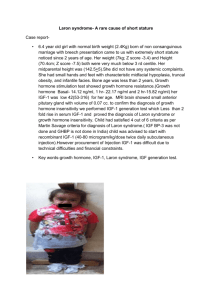
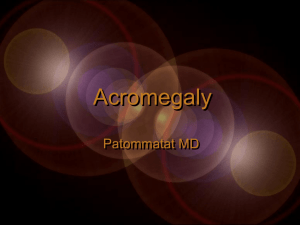
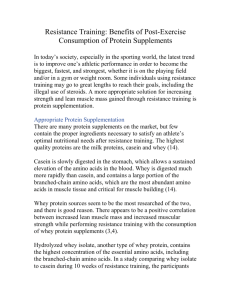

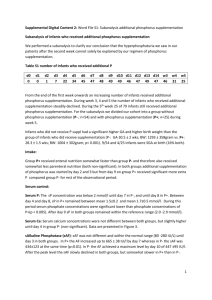
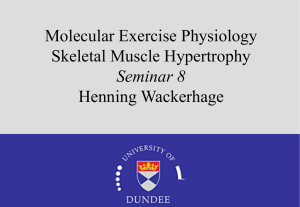
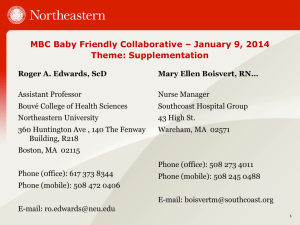
![abstract template [2]](http://s3.studylib.net/store/data/006905920_1-31a613634d7accafb57436fea4552fd7-300x300.png)
